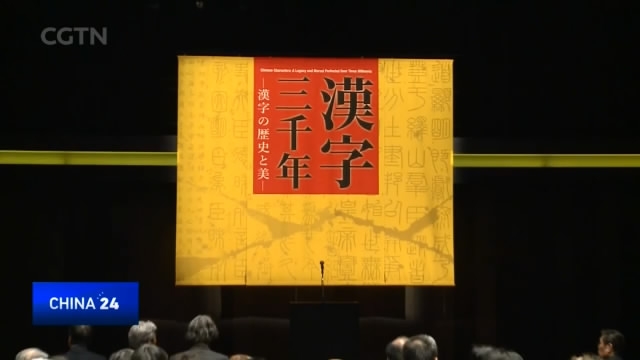
20:50, 10-May-2018
Higher Learning: Japanese students in China help transcend differences
02:56

China and Japan established diplomatic relations in 1972. There have been political frictions over the years but educational pursuits have helped some rise above the fray. CGTN's Wei Lynn Tang speaks to a few Japanese students, and finds out what lures them to China.
China and Japan, two of Asia's biggest power and sharing many cultural roots. There has been some troubled modern history, and disputes in the East China Sea but this seemingly has not trickled down to education exchanges. In 2016, over 13-thousand students from Japan studied in China, making up over 3 percent of China's international student body. The percentage in 2015 was similar.
LI E, VICE PRESIDENT, COLLEGE OF INTERNATIONAL EDUCATION MINZU UNIVERSITY OF CHINA "In the beginning, Japanese students came to China mainly to study the language. But in recent years, students have also opted to do their undergraduate and postgraduate studies here, including in economics, management and even music. While the two countries have had frictions, I believe they are mostly at the political level, due to differing viewpoints. But from an economic, education and cultural exchange standpoint, things haven't been affected that much."
But truly, one can say, language has the ability to transcend differences. Some of these Japanese students began learning the Chinese language back home, but thought that wasn't enough. So they came here for the real thing.
IBUCHI AKANE, INTERCOLLEGIATE EXCHANGE STUDENT MINZU UNIVERSITY OF CHINA "I used to think that we are very different, because when Chinese people go to Japan for holiday, I feel they can be a bit loud and rude. I wanted to come here to China to understand if this was a cultural or mindset difference. But after coming here, I have found my Chinese friends to be kind-hearted and quite well-mannered. So the differences are actually not that huge."
RYUHEI KAWANO, INTERCOLLEGIATE EXCHANGE STUDENT MINZU UNIVERSITY OF CHINA "The Chinese influence on the world has grown larger, and that spurred me to learn Chinese. Before I came here, I thought the Chinese did not have a good impression of Japan, but now after making many friends here, this misunderstanding is gone. The youth today are different from the past. I like my life here."
An undergraduate student who has been in China for a year and a half, says she first fell in love with the Chinese language after watching a Chinese history TV show.
WADA HARUKA, UNDERGRADUATE STUDENT MINZU UNIVERSITY OF CHINA "China and Japan are both Asian countries -- their ways of thinking are similar but not entirely the same. Sometimes there can be misunderstandings between my Chinese friends and me, and it can feel awkward. But as I am now living in China, I respect their thinking."
That said, a teacher who has been teaching Japanese language in China for over 10 years still feels there is a huge difference between the two countries.
HIGUCHI MIYUKI, FOREIGN TEACHER MINZU UNIVERSITY OF CHINA "The most important thing going forward is how to better understand one another, both us Japanese towards Chinese views and practices, and vice versa."
WEI LYNN TANG BEIJING "2018 marks 40 years since the signing of the China-Japan Treaty of Peace and Friendship. However, as frictions continue to linger between the two countries, experts say the importance of people-to-people exchanges should not be undermined in the pursuit of stronger bilateral relations. WLT, CGTN, Beijing."

SITEMAP
Copyright © 2018 CGTN. Beijing ICP prepared NO.16065310-3
Copyright © 2018 CGTN. Beijing ICP prepared NO.16065310-3